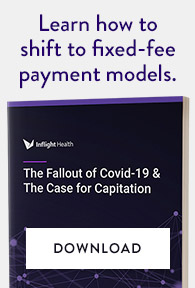During 2013, fans of “Jeopardy” watched a supercomputer called “WATSON” demolish long-time champion Ken Jennings in a battle of brains. After that, the creation evolved into something known as “WATSON HEALTH AI” – which is currently being used within sixteen different cancer institutes across the country for the purpose of treating and diagnosing patients. At the same time, Google has launched something called “DeepMind”, which recently earned the “world champion” title in a game of “Go“. Now, DeepMind Health is in the process of creating new healthcare applications for professionals who need to be alerted to complications of treatment options, and patient needs.
What does all of this mean? AI is officially beginning to make a move into the healthcare sector – and we can expect that the world as we know it thereafter will never be the same. Other tech companies like Hitachi, Apple, HP, and Dell are all designing AI programs for the healthcare field, and within the next half-decade, the use of AI in medicine is expected to increase by ten times.
How AI Works in Healthcare
According to AlanTuring.net:
“Artificial Intelligence (AI) is usually defined as the science of making computes do things that require intelligence when done by humans.”
AI might seem like a sci-fi concept – but you’re probably already using it. For instance, Siri, Cortana, and Google Now all use AI to help you find useful information. Smart cars that are designed to drive themselves and gather data, and even apps like Spotify or Netflix that assess information to offer recommendations regarding your viewing or listening preferences – are all AI based. After all, AI simply works by gathering information about a specific topic or information, and using that data to find a solution.
Imagine that a patient visits a doctor’s surgery complaining of various symptoms. Despite years of medical training and experience, the doctor doesn’t know what to make of the condition – and turns to his colleagues for help. Years ago, a situation such as this would lead to weeks, months, and even years of in-depth research – time that the patient may not have. However, today, physicians can log into the medical network and learn more about even the rarest of conditions – along with the various treatments that can be used to solve the issue. This is all thanks to “Modernizing Medicine” an AI data mine for essential healthcare information.
Artificial intelligence can effectively diagnose illnesses, offer examples of the best possible treatment options, and eliminate the chance for human error all in one fell swoop. All of this means quicker diagnoses, better treatment, and reduced costs within the healthcare industry.
AI and the Growth of Digital Data
As the digital world of healthcare has continued to grow, larger volumes of data are being produced and stored within the digital space. In fact, the amount of available data is growing at a mind-blowing speed, and doubling every two years. In 2013, there was around 4.4 zettabytes of data produced annually, but by 2020, it’s estimated that the amount we create will reach 44 zettabytes (44 trillion gigabytes).
In other words, the amount of healthcare information we have today is overwhelming – but AI can help is sort through the masses. Modernizing Medicine, for example, collates data from over 14 million patient visits and 3,700 providers. AI can also minimize recidivism, by following cases and making additional recommendations as time continues. Simply put, these records of medical information aren’t just saving space and time in the medical industry – they’re actively making the healthcare system better.
Theoretically, it’s predicted that AI will be able to consider a person’s unique genome, then recommend treatment options to doctors that will serve that individual best – limiting side effects and offering truly personalized healthcare.
The Benefits of AI
The potential of AI is phenomenal. In research, it could help to streamline the way that drugs are developed so that treatments are synthesized faster for new and old diseases alike. The system could even help to identify previously unknown pathways that may hold the key to treating previously untreatable diseases. AI is being used to:
- Reduce the mortality rates in hospitals across the world, but helping doctors to come up with faster treatments for serious illnesses.
- Provide quick and accurate diagnoses that might be impossible to spot with human intelligence alone.
- Limit errors made as a result of human fatigue – after all, doctors see around 80 patients a week, and that can be an exhausting amount of information to work with.
- Improve cancer care – In the case of WATSON, an analysis of cancer patients found something new and important in 30% of individuals – identifying a treatment that couldn’t have been discovered by physicians.
- Using an understanding of individual human genetics to create truly personalized treatment plans within the healthcare field. This means picking medicines and rehabilitation that suits your genetic makeup best.
Importantly, AI isn’t intended to replace doctors within the existing healthcare sphere. Instead, it’s here to advance the capabilities that medical professionals already have, and bridge the gaps in their abilities. What’s more, although AI technology can promise a lot of benefits to the healthcare industry – at this time, finding ways to implement them within the current healthcare system and find training solutions for medical professionals can be something of a challenge.



